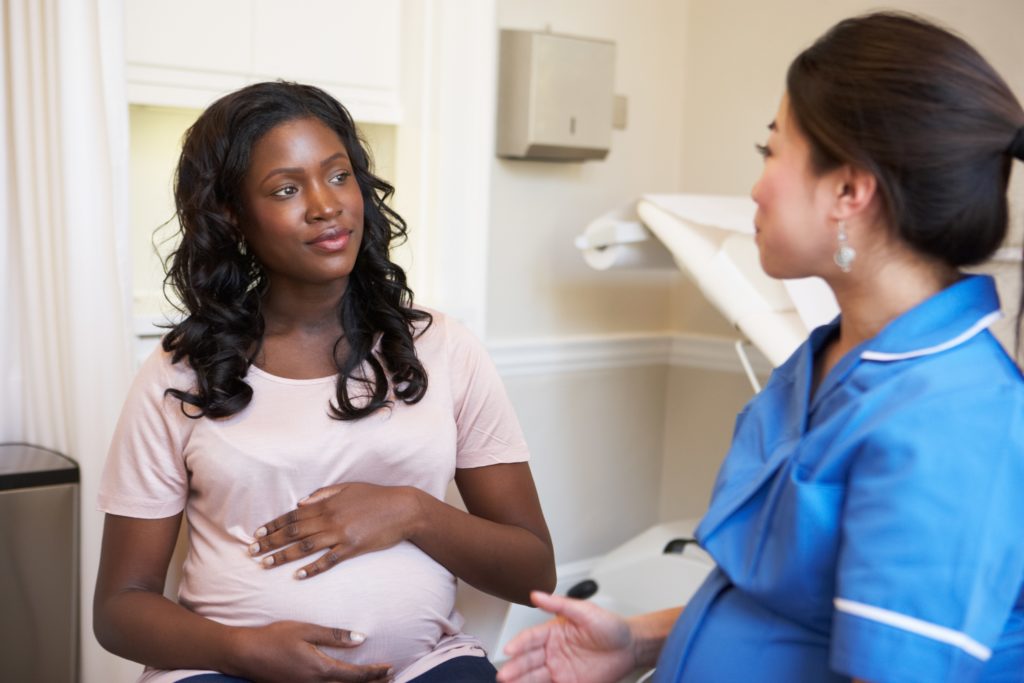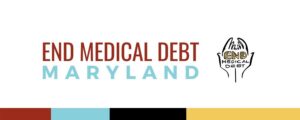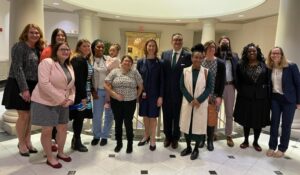
Many systemic barriers keep people from attaining their highest level of health. Some healthcare providers fail to provide language interpreters to those in need. Maternal health providers often aren’t trained to be culturally sensitive to expectant Black mothers. With rising costs of food and other necessities, safety net services that support individuals and families struggling to make ends meet like the Supplemental Nutrition Assistance Program (SNAP) and Temporary Cash Assistance Program (TCA) do not provide enough support and flexibility in meeting needs of individuals and families in Maryland. Further, the experience and feedback of directly impacted individuals is often not valued as expertise. These are just a couple of the ways that our healthcare systems and safety net services fail our communities, and in particular, fail people with low-incomes and people of color.
The Public Justice Center’s Health and Benefits Equity Project uses legal tools to reform these systems. We advocate to protect and expand access to healthcare and safety net services for Marylanders struggling to make ends meet. We support policies and practices that are designed to eliminate economic and racial inequities and enable every Marylander to attain their highest level of health.
Here’s what we’re working on:
- Expanding access to Community Health Workers for low-income Marylanders, including individuals who do not qualify for health insurance coverage due to their immigration status.
- Ensuring that individuals with limited English proficiency (LEP) are afforded timely and consistent access to language services in healthcare and safety net services.
- Strengthening medical debt collection protections for low-income patients and families.
- Eliminating racial disparities in maternal health outcomes by expanding access to prenatal, birth and postpartum care.
- Advocating for authentic and meaningful opportunities for directly impacted communities to participate in shaping Maryland’s healthcare system and safety net services.
- Protecting access to public benefit programs, including SNAP, TCA, Medical Assistance and the Maryland Children’s Health Insurance Program.
Get Involved
Language access advocacy
Learn about language access rights and gaps in Maryland’s language access landscape, and how to strengthen and preserve these important rights at the state level in these materials from our January 2025 Justice for Breakfast presentation.
Language Access as a Human Right PowerPoint presentation
CHW Advocacy Coalition

We want to advocate with you!
The Public Justice Center is working with Community Health Workers (CHWs) and other advocates to build a coalition to advocate for reimbursement of CHW services and work to address other inequities in the field.
The coalition’s advocacy will be shaped by the experiences and expertise of Maryland’s CHW community and their priorities.
CHWs play a crucial role in improving health outcomes for Maryland’s low-income patients, but they report facing a host of barriers in their work, including lack of stable funding sources and respect and recognition as an important member of the patient care team.
Together we can change this!
Contact Paralegal David Reische to learn more and get involved in the coalition: (410) 625-9409 x277, reisched@publicjustice.org
Join End Medical Debt Maryland in fighting against predatory medical debt collection practices by hospitals!

Have you or someone you know been taken to collections or sued by a hospital because of medical debt? Please join us in fighting against predatory practices from hospitals with End Medical Debt Maryland! PJC is an active member and co-chair of the Advocacy committee for End Medical Debt Maryland, a coalition of organizations and community members advocating to pass comprehensive medical debt reform, educating Marylanders on their patients’ rights in debt collection, and eliminating other barriers to healthcare. For more information on joining the coalition, please contact Paralegal David Reische at reisched@publicjustice.org or (410) 625-9409 x277.
Impact

During the 2023 Maryland legislative session, we successfully advocated with directly impacted community members and anti-poverty advocates to require the Department of Human Services to reimburse more than 3,800 households whose food and cash assistance benefits were stolen through Electronic Benefits Transfer (EBT) card theft to the tune of $2.5 million dollars. To learn more about this advocacy and protections for households who have experienced theft under the new reimbursement law, check out the video from this Justice for Breakfast presentation.
In December 2022, Centro SOL and the Public Justice Center released a collaborative report, Speaking the Language: The Right to Interpretation & Translation Services for Children and Adolescents with Mental Health Needs in Maryland, which is available in English and Spanish here. The report finds that in Maryland, many mental health providers do not offer or refuse to provide interpretation and translation services that enable communication between individuals with limited English proficiency and their providers, despite receiving federal financial assistance that requires providers to provide language access to patients. This failure is two-fold as the State of Maryland has not provided strong monitoring and enforcement of language access rights and provider obligations embedded in Title VI of the Civil Rights Act of 1964 and Section 1557 of the Affordable Care Act, leaving individuals with limited English proficiency with little recourse.
Together with the Reproductive Health Equity Alliance of Maryland, worked with the Maryland Department of Health to establish the Doula Technical Assistance Advisory Group, which draws on leadership and insight from birth workers, researchers, advocates, and people with lived experience and aims to lay a foundation for equitable and inclusive voluntary doula certification and Medicaid and private insurance reimbursement for doulas. Expanding funding and access to community-based doulas can help address racial disparities in maternal healthcare. As a result of our advocacy, Maryland joined a handful of states in providing doula Medicaid reimbursement in early 2022.
Worked in coalition with End Medical Debt Maryland to successfully advocate for the passage of the 2021 Medical Debt Protection Act, a strong foundation for protecting low-income Marylanders’ livelihoods, homes, and potential for intergenerational wealth transfer from harmful hospital medical debt collection practices.
Worked with the Maryland Hepatitis Coalition and Marylanders Against Poverty to expand access to Hepatitis C medication, successfully advocating to remove a requirement that Maryland Medical Assistance beneficiaries have liver damage in order to be eligible for treatment. To learn more about this advocacy and the barriers to accessing Hepatitis C treatment through Maryland’s Medicaid program, check out the video from this Justice for Breakfast presentation.
Filed a lawsuit that compelled the State of Maryland to eliminate a backlog of over 9,000 Medicaid applications for people with disabilities and agree to promptly process all applications going forward.
Filed a complaint with the Office for Civil Rights of the U.S. Department of Health and Human Service after a local Kool Smiles dental office failed to provide an interpreter to a Deaf client. The complaint resulted in Kool Smiles implementing a number of changes to ensure that its employees accommodate Deaf and hard of hearing clients at its 125 locations across the country.



